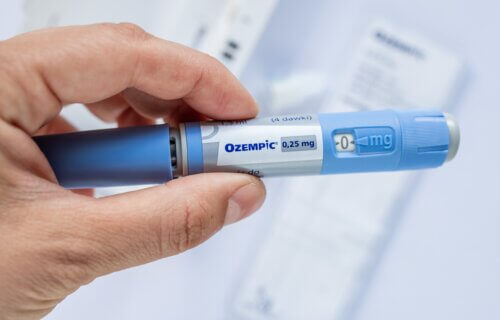GOTHENBURG, Sweden — Ozempic, a drug patients typically use for diabetes, has been in the headlines recently since its approval as an obesity treatment. Now, scientists are looking to see what else it can do, with researchers from the University of Gothenburg finding that Ozempic could successfully cut a person’s alcohol consumption.
In experiments with alcohol-dependent rats, researchers discovered that the popular medication cut the animals’ drinking in half. So far, there are only four available drugs for alcohol dependence. Since the disease can have a variety of causes, and efficacy of current drugs isn’t consistent, it’s important for drug development efforts to focus on putting more products out on the market.
Ozempic, or semaglutide, is a long-acting substance that’s only taken once a week. The medication is the first tablet to act on the GLP-1 receptor, which stimulates insulin release. In this study, the team of researchers treated alcohol-dependent rats with semaglutide, finding that it not only greatly reduced alcohol consumption, but prevented relapses as well.

– stock.adobe.com)
For many people, limiting alcohol is a struggle, but preventing relapses is another battle entirely. Often times, people who relapse end up drinking more than before they started feeling withdrawal symptoms.
In the study, alcohol intake was cut in half among rodents taking Ozempic, compared to rats who didn’t receive the drug. The effect was seen in both male and female rats.
Despite promising findings in animals, the team understands that there are differences between animals and humans that they still need to account for. Moreover, it’s possible that this drug may only be beneficial for patients who are dependent on alcohol and also overweight, given the way the medication works. In any case, the team is confident that the results will be transferrable to humans.
“There are, of course, differences in conducting studies on animals and humans, and these must always be taken into account. However, in this case, there is a previous study on humans in which an older version of the diabetes medications that act on GLP-1 was found to reduce alcohol intake in overweight individuals with alcohol dependence,” says Elisabet Jerlhag, a professor of pharmacology at Sahlgrenska Academy at the University of Gothenburg, in a media release.
The team also explored how exactly the drug was able to cut alcohol consumption so well.
“Alcohol activates the brain’s reward system, resulting in the release of dopamine, something that is seen in both humans and animals. This process is blocked by the medication in mice, and with our interpretation, this could cause a reduction in the alcohol-induced reward,” explains Cajsa Aranäs, a doctoral student at Sahlgrenska Academy.
The findings are published in the journal eBioMedicine.
You might also be interested in:
- From Ozempic to Wegovy, here’s what you should know about ‘anti-obesity’ drugs
- Ozempic without Ozempic: These foods can calm your appetite just like weight loss drug
- Alcoholism cure disulfiram may also help patients with anxiety

